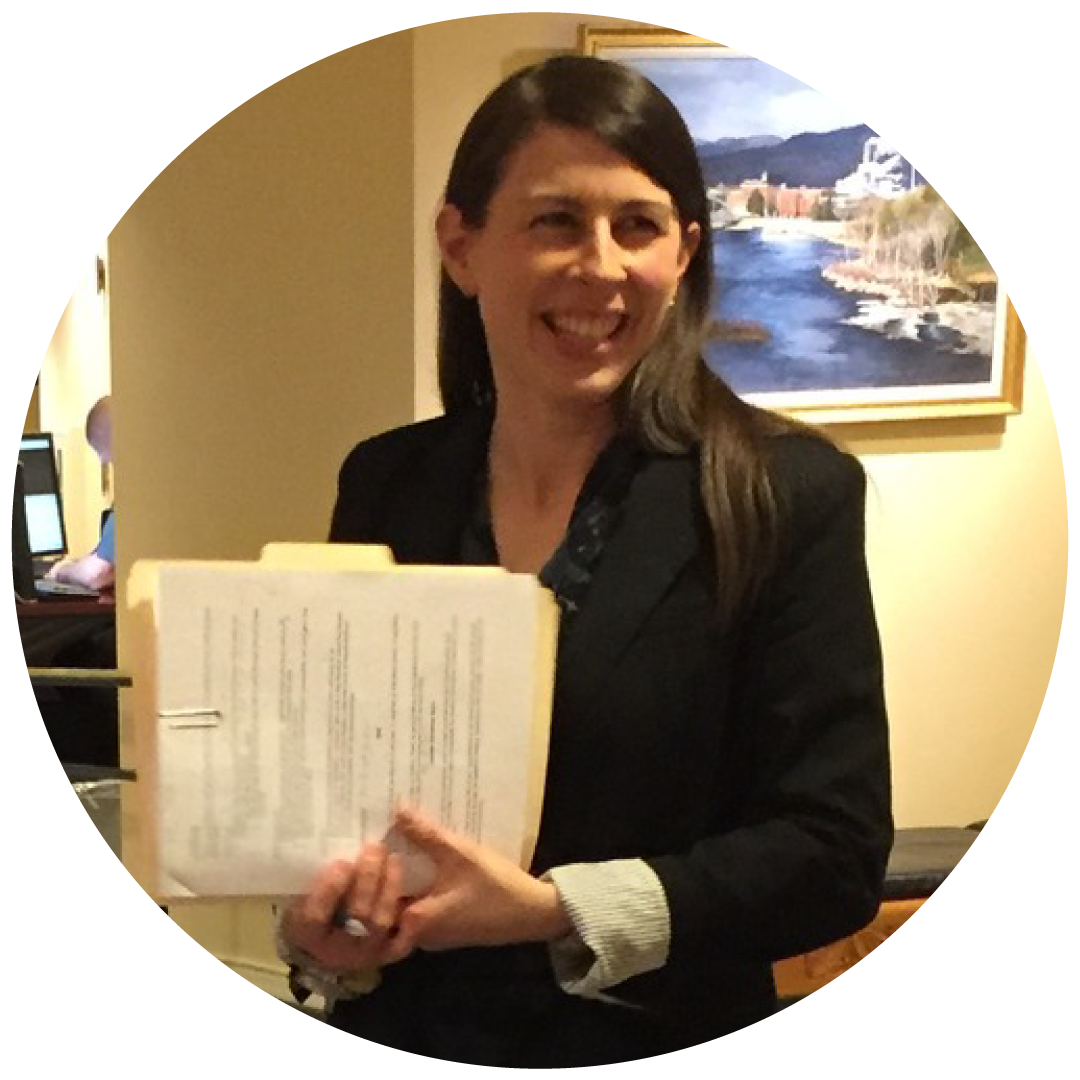Previous Episode
About this module
In this module, you will learn a brief history of the Maine Legislature. Why is Maine the only state to have a People’s Veto? What is a “citizen’s legislature” and how does it affect who can afford to serve? What are Clean Elections and other programs unique to Maine?
_________
The State of Maine and tribes belonging to the Wabanaki Confederacy have had a long and fraught relationship. This module briefly covers the history of Maine's government and legislature, these structures which stripped land and power from the Wabanaki people for hundreds of years. Before we can talk about the Maine Legislature and how it came to be, we must first acknowledge this history.
Today, Wabanaki tribes are fighting for the right to self-govern. We believe that defending sovereignty is defending democracy, and we support the Wabanaki people in their fight for tribal sovereignty. For more information, we explore the history of state and tribal relations in the previous episode.
The goals and lessons for this episode are detailed below. Click on a box to expand and learn more about each section.
Featuring

Lane Sturtevant
Organizer for Democracy Maine
Lane has worked at nonprofit organizations in Lewiston and the Midcoast in youth programming and education roles. Most recently, they served as a youth coordinator for OUT Maine, an organization supporting and empowering LGBTQ+ youth in rural Maine.

Bob Howe
Retired Lobbyist
Bob served the Maine Legislature for two terms, worked for several consulting firms, and would later form Howe, Cahill & Company, the state’s largest firm specializing in governmental relations and association management. Bob has since retired after a long career in Augusta.

Betsy Sweet
Owner of Moose Ridge Associates
Betsy is the founder and Principal of Moose Ridge Associates, specializing in governmental affairs, lobbying, and grassroots advocacy. A legislative advocate at the State House for thirty years, Sweet has developed strategy and legislation for many nonprofits and environmental clients.

Jessica Lundgren
Senior Law Librarian
Jessica works at the Maine State Law & Legislative Reference Library in Augusta. This library is a nonpartisan service office of the Maine Legislature, and it serves the public interest by providing legal and governmental information services without discrimination.
Here's a brief look at Maine's constitution and pathway to statehood. Can you guess how many times the state constitution has been ratified?
Key Links
1820 Constitution of the State of Maine: Check out this scanned copy of the original state constitution.
Constitution of the State of Maine: Here's the current state constitution .
List of Amendments to the Maine Constitution.
Additional reading:
How Maine Became a State 200 Years Ago, and What That Had to Do With Slavery: Short Maine Public interview with historian Herb Adams on Maine’s statehood and the Missouri Compromise.Click here to read.
What hasn't changed about Maine government since becoming a state in 1820? We describe ourselves as a Citizen Legislature, which means that Maine legislators are not really paid enough to do this full-time.
Citizen Legislature: noun | cit·i·zen leg·is·la·ture | A citizen legislature is a legislative chamber made up primarily of citizens who have a full-time occupation besides being a legislator.
Additional reading:
Maine’s ‘citizen legislature’ is mostly business owners or retired, not working class: "During the legislative session, which runs from January to May or later, lawmakers spend well over 40 hours each week — and some say up to 80 hours — in committee meetings, hearings, caucus sessions and more. Throughout the year, there are myriad other commitments, from campaigning to researching bills. For that time, they are paid less than $25,000 for a two-year term," writes Dan Neumann for the Maine Beacon. Click here to read to more.
Lobbyists have been a long tradition at the State House. Back in the day, the most powerful lobbyists were from the railroad and paper mill companies. Maine enacted the citizen petition process in 1909 with the approval of Maine Constitutional Amendment XXXI, which allows citizens to submit legislation. Since then, Maine's government has become more accessible so that anyone can work with a legislator to submit a bill, and anyone can lobby their legislator on important issues.
Maine Clean Elections
The Maine Clean Election Act, passed in 1996 by citizen initiative, allows anyone with enough community support to run for office, regardless of economic background or access to wealth. Before the law was passed, candidates would either spend their own money or raise funds from those willing and interested in funding a political campaign. Today, even those without personal wealth or connections can run viable campaigns. Learn more about Maine Clean Elections
Key Links
Maine is a small state, but we're well-represented in the state Legislature. As an example, there are 151 members in the House of Representatives, which means there is one representative per about 9,000 residents. Other states are not as well-represented, such as Colorado where there are only 65 members in the House of Representatives, which evens out to about one representative per 88,800 residents.
Also worth mentioning:
Ranked Choice Voting: As of December 2022, 63 American jurisdictions have Ranked Choice Voting (RCV) in place, reaching approximately 13 million voters. Maine is one of the states that uses RCV for both the primary and general elections for President, U.S. Senate, and U.S. House. State races use RCV only in primary elections. Local elections do not use ranked choice voting except in Portland and Westbrook. Learn more about RCV.
Strong voting rights: Maine paves the way when it comes to keeping the voting booth open and accessible. We have same-day voter registration, no photo ID is required to vote when you go to the polls on election day, and we have no felony disenfranchisement. Maine is one of only two states that does not deny voting rights to those convicted of crimes. Learn more about voting rights in Maine.
There's still work to do: While Maine has a number of protections in place to uphold strong voting rights, there is still plenty of work to do when it comes to standing up for racial justice. The League of Women Voters of Maine is currently working on and supporting bills that: address prison gerrymandering, recognize tribal sovereignty, strengthen Wabanaki studies in Maine Schools, amend the state constitution to publish treaty obligations, and others. Learn more about our racial justice work.
The Law and Legislative Reference Library is an excellent resource open to the public. The library is a nonpartisan office of the Maine State Legislature. They provide legal and governmental information, research and resources to all the citizens of Maine, their government, and the legal community. Please note that the Library does not give legal advice or interpretations.
Law Library Information
The Law and Legislative Reference Library is located at the Maine State House (210 State St, Augusta). If you plan to visit in person, there is free parking in the State Office Building Parking Garage (93 Sewall St). The public entrance is on the west side, facing the Cross Office Building. The Library is on the 2nd floor.
Key Links
Maine State Law & Legislative Reference Library: Provides legal and governmental information, research and resources to all the citizens of Maine, their government and the legal community. Use their Ask a Librarian tool.
Call the library: 207-287-1600. If you leave a message, please be sure to include your name, phone number and email address.
Further Reading
Here are additional links that may be useful to you as you learn how the Legislature works in Maine:National Conference of State Legislatures: Offers comparative information about states, such as the rate of pay for state legislators. Learn more here.
Maine State Museum’s Online Exhibits: Some online exhibits from the Maine State Museum on topics like Maine’s path to statehood. Learn more here.
Previous Episode



